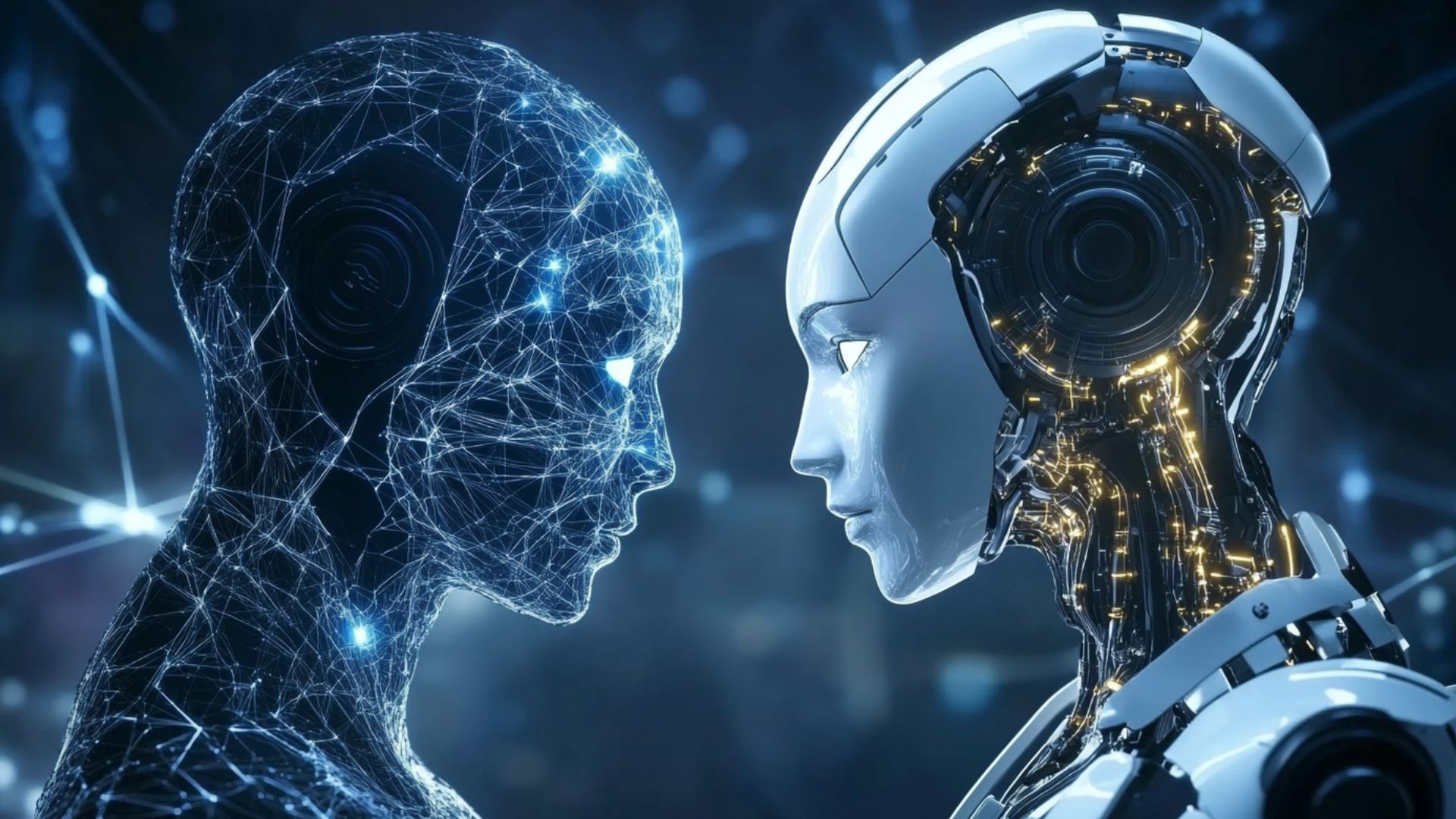AI Receptionist: Enhancing Guest Interactions with Smart Technology

In today's fast-paced customer service environment, automated systems are revolutionizing. They are revolutionizing the way companies interact with guests. These systems use advanced technology to perform tasks traditionally handled by on-site staff. There are many benefits to implementing an automated phone receptionist into your business. They operate 24/7, ensuring that all guest inquiries and requests are promptly addressed.
This constant availability increases guest satisfaction and engagement. Modern AI receptionists can handle a large number of requests simultaneously. They significantly increase operational efficiency. By automating routine tasks, companies can free up staff to focus on more complex activities. Ultimately, such systems improve the overall guest experience.
Core Functions of AI Receptionists in Customer Service
These systems do an excellent job of managing routine inquiries and booking processes. They ensure accuracy and speed. These digital assistants can do the following:
- Answer Common Questions: Respond instantly to FAQs, reducing wait times for guests.
- Schedule Appointments: Book reservations efficiently. It helps to avoid double bookings and ensure precise scheduling.
- Update Records: Automatically update guest information and booking details. It maintains up-to-date records without human intervention.
- Send Confirmations: Issue booking reminders via email or SMS. They enhance communication and reduce no-shows.
- Process Payments: Handle transactions securely during the booking process. They provide a seamless experience for guests.
An AI receptionist can significantly broaden the scope of guest interactions. This is achieved through its multilingual support capabilities. These systems can:
- Communicate in Multiple Languages: Interact with guests in their preferred language. It breaks down barriers and improves the overall guest experience.
- Translate in Real-Time: Provide translation services during interactions. They ensure clear and accurate communication.
- Customize Responses: Tailor answers to cultural and linguistic nuances. They offer a more personalized interaction.
- Expand Reach: Serve a more diverse customer base. It accommodates guests from various linguistic backgrounds.
- Improve Accessibility: Make services more available to non-native speakers. They enhance inclusivity and guest satisfaction.
Businesses should integrate digital receptionist systems with multilingual support. It ensures companies can cater to a global audience. Such systems provide high-quality service and communication to all guests.
Personalization of Guest Experiences
These systems use data to create a personalized experience for each guest. These receptionists analyze guest history and preferences. They also can:
- Tailor Greetings: Address guests by name and recall previous interactions. It helps to make them feel valued and recognized.
- Recommend Services: Suggest products based on past purchases or preferences. They increase the likelihood of satisfaction.
- Customize Offers: Provide special offers or discounts tailored to guests' interests and behavior.
- Schedule Preferences: Remember appointment times and types of services. They make future bookings more convenient.
- Update Preferences: Adjust recommendations and services as guest preferences evolve.
Virtual receptionist software uses advanced AI to engage guests more effectively. It happens through personalized communication and service options. These technologies can:
- Interactive Communication: Use natural language processing (NLU). They engage in meaningful conversations addressing guests' needs.
- Proactive Assistance: Offer help based on guest behavior. It may be suggesting additional services or resolving potential issues before they arise.
- Feedback Collection: Digital receptionists request and analyze reviews. They improve service quality and personalization continuously.
- Behavioral Insights: Track and analyze guest interactions to gain insights into preferences. Tailor future engagements.
- Omnichannel Support: Provide seamless help across various platforms. It may be by phone, email, or chat. Such support ensures consistent and personalized guest experiences.
Businesses should integrate virtual receptionist apps. This can significantly enhance the personalization of guest experiences. It leads to higher satisfaction and loyalty.
Integration with Other Business Systems
This system seamlessly integrates with CRM and ERP to streamline operations. Such an integration allows businesses to:
- Centralize Data: Automatically sync guest information across all platforms. It ensures accurate and up-to-date records.
- Enhance Customer Profiles: Use data from CRM systems to provide personalized interactions. They are generally based on comprehensive client profiles.
- Automate Workflows: Trigger automated actions in ERP systems. They are inventory updates or service scheduling. Such systems reduce manual work.
- Improve Reporting: Generate detailed reports combining data from various sources. They gain insights into business performance.
- Optimize Resource Allocation: Use integrated data to allocate resources more efficiently. It improves overall operational efficiency.
Ensure data security and privacy. This is paramount in interactions handled by a virtual front desk receptionist. Measures in place include:
- Encryption: Advanced encryption methods protect data during transmission and storage.
- Access Control: Implement access controls to ensure that only authorized personnel can access sensitive information.
- Compliance: Adhere to industry standards and regulations. For example, GDPR and HIPAA. They maintain compliance and protect guest data.
- Regular Audits: Conduct security assessments to identify and address potential vulnerabilities.
- Data Anonymization: Use these techniques to protect guest identities. This is while still allowing for data analysis and reporting.
- Real-Time Monitoring: These systems detect and respond to any suspicious activity.
Businesses should integrate virtual receptionist systems with other business platforms. They must ensure robust data handling and privacy measures. So, companies can enhance efficiency while maintaining high standards of guest trust.
Impact of AI Receptionists on Operational Efficiency

They significantly alleviate the administrative burden on human employees. It enables them to concentrate on more complex and value-added tasks. This is generally achieved by:
- Automating Routine Inquiries: Handling common questions and information requests automatically.
- Managing Appointments: Scheduling, rescheduling, and canceling them efficiently.
- Directing Calls: Using AI voice chat. It routes calls to the appropriate departments or individuals.
- Processing Payments: Handling basic transactions. It frees up staff to focus on more critical tasks.
- Updating Records: Automatically updating client information in CRM systems.
- Providing Basic Technical Support: Offering initial troubleshooting steps for common issues.
The availability of AI voice assistants around the clock is vital. It ensures continuous customer support and numerous benefits:
- Constant Accessibility: Providing customer service and support anytime, including outside of regular business hours.
- Reduced Wait Times: Minimizing customer expectation times for responses and services.
- Enhanced Customer Satisfaction: Offering prompt and efficient service. It improves the overall client experience.
- Increased Productivity: Allowing human staff to be more efficient. It happens by focusing on tasks that require human judgment and creativity.
- Cost Efficiency: Reducing the need for after-hours staffing. It lowers operational costs.
- Scalability: Handling high volumes of interactions without additional staffing costs.
Integrating AI voice assistant technologies into the receptionist role transforms operational efficiency. It offers businesses a scalable solution for maintaining high levels of client service around the clock.
Challenges and Solutions in Implementing AI Receptionists
Deploying them comes with several technological hurdles. These can be overcome with the right strategies:
- Integration Issues: Difficulty implementing with existing systems. It can be quickly resolved by choosing solutions. They must have robust APIs and compatibility features.
- Data Security Concerns: Install advanced encryption, access control, and regular security audits. They will protect sensitive information.
- Accuracy and Reliability: Continuous improvement through machine learning. Regular updates ensure AI call bots remain accurate and reliable.
- Customization Needs: Work with providers who offer these solutions. They will help you to meet specific business requirements.
- Initial Cost: Mitigate high initial investment expenses. Focus on long-term ROI and operational savings.
- Scalability: Select scalable AI solutions to accommodate future growth and increased demand.
Practical training and adaptation processes are crucial for staff. They help them to work alongside AI receptionists efficiently:
- Comprehensive Training Programs: Provide thorough training on interacting with AI systems.
- Role Redefinition: Reconsider job roles. Focus on tasks that require human empathy and complex decision-making.
- Continuous Learning: Provide ongoing opportunities. Keep staff updated on the latest AI voice software developments.
- Collaborative Environment: Foster it where human staff and AI work together seamlessly.
- Feedback Mechanisms: Establish review loops to allow staff to report issues. Suggest improvements for the AI systems.
- Support Systems: Offer resources to help staff adjust to new workflows and technologies.
Businesses should address these challenges and implement effective solutions. So, they can successfully integrate AI receptionists, enhancing operational efficiency and staff productivity.
Future Trends and Developments in AI Receptionist Technology
They will enhance this system’s capabilities significantly. These include:
- Natural Language Processing (NLP): Its improved understanding and generation make interactions more human-like.
- Contextual Understanding: Enhanced ability to interpret context and provide personalized responses. They are generally based on previous interactions.
- Predictive Analytics: Its utilization anticipates client needs and preferences. Predictive analytics offer proactive assistance.
- Emotional Intelligence: Integration of its capabilities is vital. They help to recognize and respond to emotional cues during interactions.
- Multi-channel Integration: Seamless integration across various communication channels. They are voice, chat, and social media platforms.
Technology rapidly progresses. Virtual reception solutions may take on new roles and increased responsibilities:
- Advanced Customer Support: Handling complex client inquiries. It also provides detailed assistance beyond basic queries.
- Appointment Management: Expanded role in optimizing scheduling. For example, rescheduling and reminders.
- Sales and Marketing Support: Assisting in lead qualification and product/service recommendations.
- Data Analysis: Analyzing client interactions and trends. It provides insights into business strategy and decision-making.
- Individualized Guidance: Offering tailored promotions based on individual client profiles and behaviors.
- Integration with IoT Devices: Communicating with them to automate tasks. Such devices also provide seamless client experiences.
Businesses must embrace these future trends and developments. So, they can leverage AI voice call technologies to enhance client engagement. These technologies help improve overall business performance.


